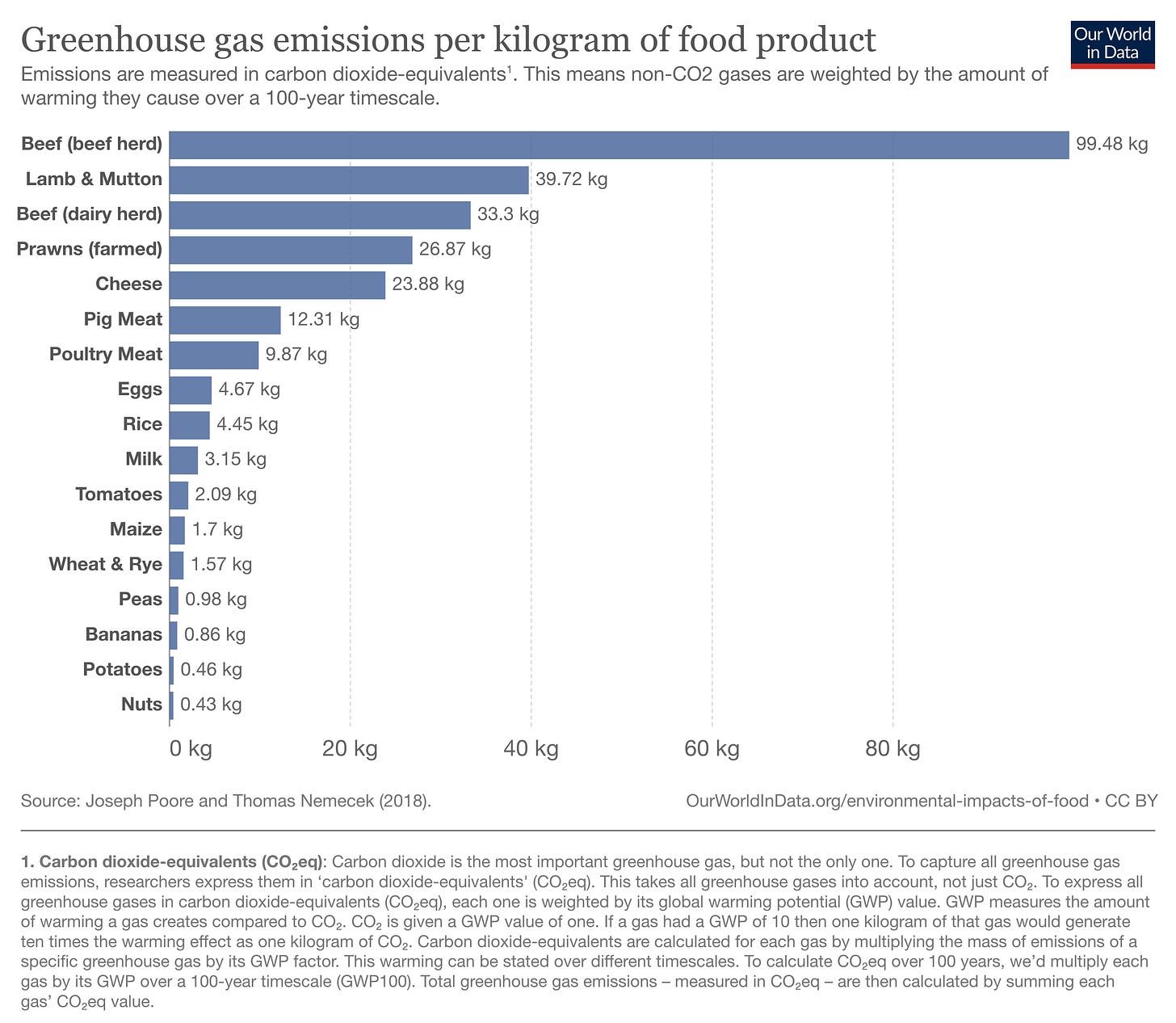📖 About us: We are a UK startup with a mission to empower a healthier, sustainable future through plant-based transformation. Ranked in the top App Store charts across Europe, the Plantwise meal-planning app 🔗📲 offers protein-rich recipes that are both tasty and affordable.
As concerns about climate change and sustainable living continue to grow, the beef industry has ramped up its efforts to mitigate criticism and promote a positive image of beef production. Today, we explore the recent revelations by The Guardian about the beef industry's strategic approach to counteract criticism. We also dive into the underlying challenges associated with beef production, as well as potential alternatives such as regenerative farming and cultivated meat.

Guardian Exposes Big Beef: A TLDR version
Last week, Guardian threw a 1-2 punch exposing the Beef industry’s promotional strategy amidst the climate crisis: “Confuse, Defend and Downplay” and “Five Climate Myths Pushed by the US Beef Industry”.
Guardian’s article delves into the US beef industry's efforts to counter growing concerns about the environmental impacts of beef production and consumption. Every kilogram of beef consumed contributes 99.5 kg of CO2 equivalent greenhouse gases. Despite this, the industry is really stepping up its public relations game to minimise its perceived environmental footprint and push back against climate policies.
The US beef industry’s five-year strategy to aggressively promote beef's sustainability includes a "Digital Command Center" that monitors over 200 beef-related topics 24/7, alerting their team when stories or online conversations gain traction (perhaps this one too if you kindly share). Their goal is to tackle what they call "misinformation" about beef's environmental impact and reach the 47% of Americans unsure about beef's sustainability.
Not only is the beef industry investing in content marketing and advertising to improve beef's image, but it has also created a course called Masters of Beef Advocacy (MBA). The Masters of Beef Advocacy trains influencers and activists in defending the industry and combating misinformation. Developed by the National Cattlemen's Beef Association, the course boasts over 21,000 graduates who disseminate industry talking points and infographics through social media. Experts interviewed by Guardian believe the industry's goal is to create confusion about animal agriculture's impacts, which could get in the way of broader political change.
Guardian also takes a closer look at the various tactics the meat industry is using to counter messages about the environmental impact of meat consumption and production. Industry groups claim that eating less meat won't help fight climate change, often pointing to air quality expert Frank Mitloehner's comments as evidence. However, these claims lack solid proof and are funded by the Beef Checkoff Program. Mitloehner, a big Twitter user and director of the Clear Center at UC Davis, focuses on research to improve animal agriculture efficiency. His centre was set up with a $2.9 million grant from IFeeder, a non-profit arm of a livestock industry group.
My Take on Beef Production: Environmental, Ethical, and Economic Challenges
Unlock the full article and dive deeper into the challenges and potential alternatives to beef production by starting your free 1-week trial today. Stay informed and make conscious choices for a sustainable future!
Keep reading with a 7-day free trial
Subscribe to Plantwise 🌱 to keep reading this post and get 7 days of free access to the full post archives.


